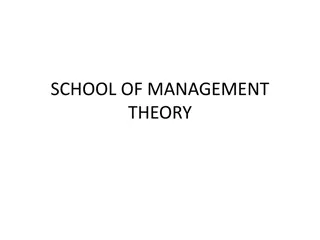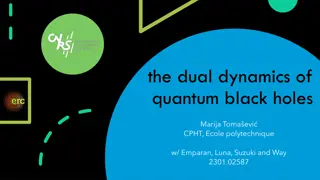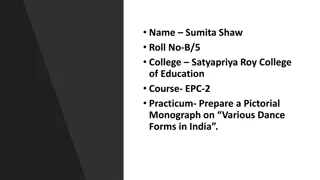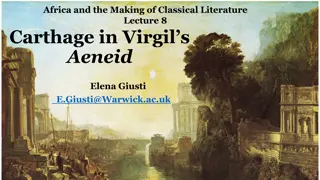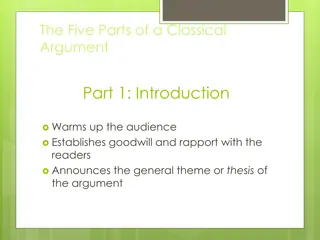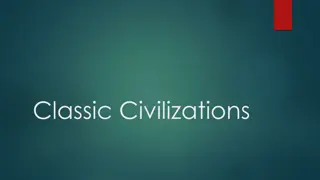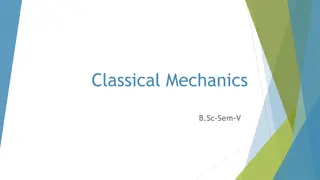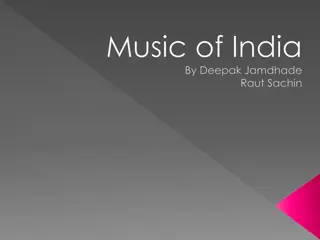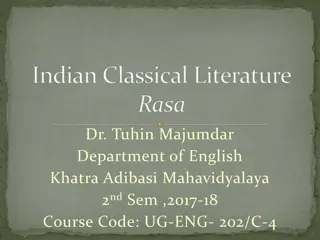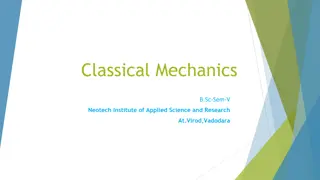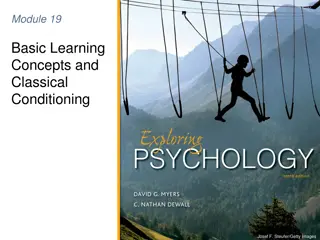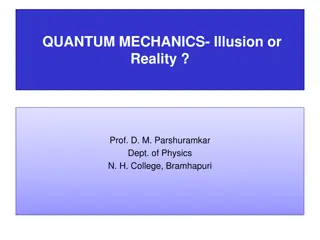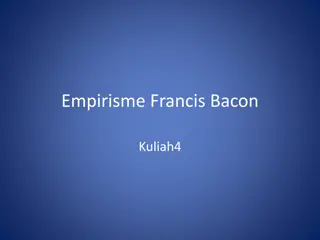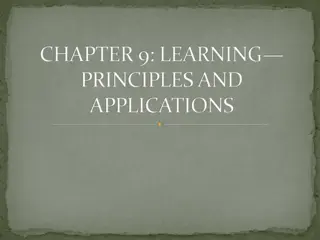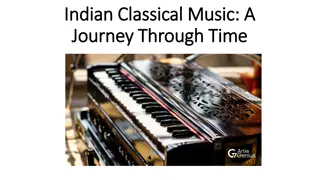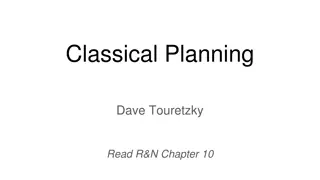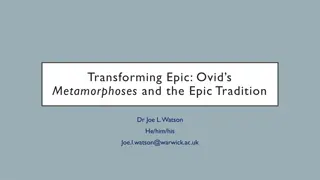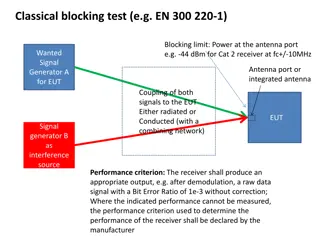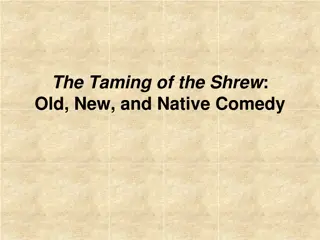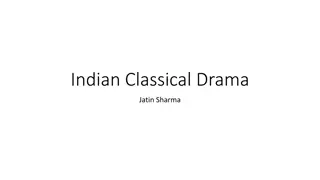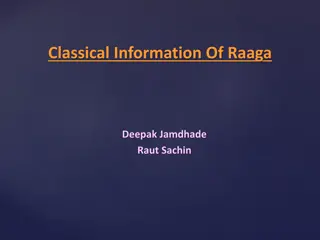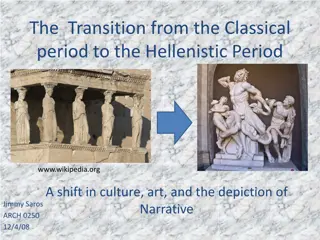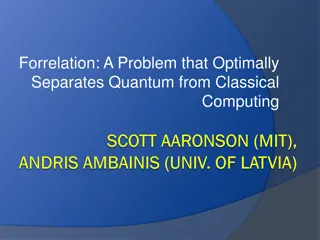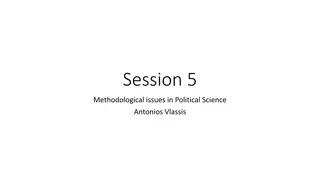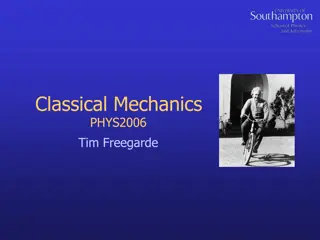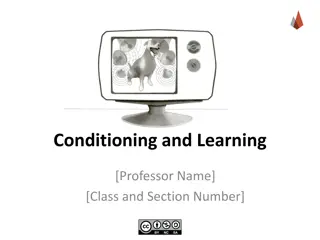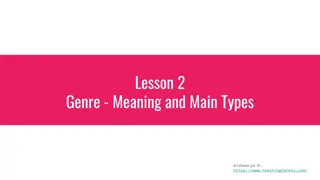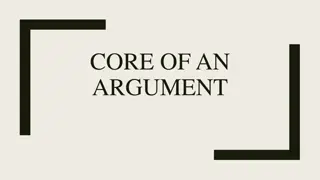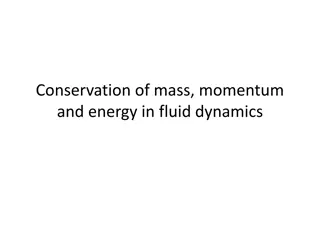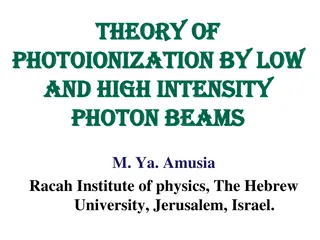Coins of Early and Classical Athens
Explore the evolution of Athenian coinage from early to classical times, reflecting civic values and community identity through silver currency. Discover the rich history and significance of these ancient coins.
1 views • 29 slides
Evolution of Management Theories: Classical Approach and Scientific Management
Explore the evolution of management theories focusing on the Classical Approach and Scientific Management. The Classical Approach emphasizes efficiency and specialization, while Scientific Management introduced systematic methods to increase productivity. Learn about key figures like Frederick Winsl
6 views • 31 slides
Exploring Quantum Black Holes: Dual Dynamics and Brane Evaporation
Exploring the dual dynamics of quantum black holes reveals new perspectives on black hole evaporation. By placing black holes on branes, we can study their classical picture in higher dimensions. This approach provides insights that were previously unattainable, leading to a better understanding of
1 views • 28 slides
Exploring the Rich Dance Forms of India
India's diverse cultural landscape is reflected through its various dance forms. From the spiritual Classical dances to the celebratory Folk dances, each form carries a unique essence and history. Bharatnatyam, Kathak, Kuchipudi, and more showcase the vibrant traditions and stories of different regi
0 views • 15 slides
Carthage: A Heterotopic Space in Classical Literature
Carthage, as depicted in Virgil's Aeneid and through artworks by Claude le Lorrain and J.M.W. Turner, is examined as a heterotopic space in classical literature. The concept of imagined geographies and heterotopias is explored in relation to Carthage, highlighting how it was represented, contested,
0 views • 31 slides
Understanding Fiscal Policy Options in Economics
Explore the evolution of economic theories including classical economics, demand-side economics, and supply-side economics. Learn about the impact of key figures like John Maynard Keynes and Milton Friedman on fiscal policy decisions and the U.S. economy. Delve into the strategies employed during th
0 views • 18 slides
Understanding the Five Parts of a Classical Argument
The classical argument is composed of five main parts: Introduction, Narration, Confirmation, Refutation and Concession, and Summation. Each part plays a crucial role in presenting a well-structured and persuasive argument, with devices and strategies such as diction, syntax, and figurative language
0 views • 6 slides
Understanding Classical Civilizations: Timeline Analysis and Periodization
Explore the concept of periodization by creating a timeline of significant life events and categorizing them into distinct periods. Learn about classical civilizations, time periods, and the process of dividing history into eras. Dive into the Classical Age and its contributions to human development
1 views • 24 slides
Understanding Classical Mechanics: Variational Principle and Applications
Classical Mechanics explores the Variational Principle in the calculus of variations, offering a method to determine maximum values of quantities dependent on functions. This principle, rooted in the wave function, aids in finding parameter values such as expectation values independently of the coor
0 views • 16 slides
Diverse Music Traditions of India - Classical to Folk
Explore the rich musical heritage of India, encompassing classical Carnatic and Hindustani music, folk melodies, film songs, and pop music. Learn about the intricate nuances of Indian classical music, its historical evolution, and the variety of genres within the music landscape of the country.
0 views • 8 slides
Understanding Rasa Theory in Indian Classical Literature
Indian Classical Literature explores the concept of Rasa, elucidating its significance and role in the arts. Rasa is defined as the essence that is relished by the audience, encompassing a range of emotional experiences from aesthetic to metaphysical realms. The theory discusses the elements that co
1 views • 23 slides
Understanding Say's Law of Markets in Economics
Say's Law of Markets, a theory from classical economics, posits that the ability to purchase is dependent on the ability to produce and generate income. This principle highlights that production drives economic growth, emphasizing the importance of encouraging production over consumption. The law re
0 views • 9 slides
Classical Mechanics at Neotech Institute of Applied Science and Research, Virod
Delve into the world of Classical Mechanics in B.Sc Semester-V at Neotech Institute of Applied Science and Research, located in Virod, Vadodara. Explore topics such as motion of rigid bodies, angular momentum, Euler's theorem, inertia tensor, and Euler's equations of motion through a comprehensive s
0 views • 27 slides
Examples of Classical and Operant Conditioning
Robert receiving a ticket for driving under the influence illustrates operant conditioning with negative punishments, while Chris being afraid of dogs after being bitten showcases classical conditioning with stimulus generalization. Jacob's joy from smelling his date's cologne demonstrates classical
1 views • 9 slides
Understanding Basic Learning Concepts and Classical Conditioning
Acquiring new information and behaviors through experience is known as learning. One common way we learn is through associative learning, where we connect certain events together. This process can take the form of classical conditioning, where stimuli evoke automatic responses, or operant conditioni
1 views • 14 slides
Exploring Quantum Mechanics: Illusion or Reality?
Delve into the fascinating realm of quantum mechanics with Prof. D. M. Parshuramkar as he discusses the contrast between classical and quantum mechanics. Discover how classical mechanics fails to predict the behavior of electrons in atoms and molecules, leading to the development of quantum mechanic
1 views • 70 slides
Exploring Empiricism: Francis Bacon and Classical Perspectives
Empiricism, as championed by Francis Bacon, emphasizes the role of sensory experience in forming ideas over innate notions. It asserts that the human mind is like a tabula rasa, developing solely through observation and experimentation. Various forms of empiricism, such as explanatory and genetic em
0 views • 9 slides
Introduction to Quantum Chromodynamics & Field Theories in High-Energy Physics
Explore the fundamentals of Quantum Chromodynamics and Classical Field Theories in this informative lecture, covering topics such as global and local symmetries, Lagrangians, actions, and dynamics. Understand the significance of global and local symmetries in classical field theories, along with exa
2 views • 17 slides
Understanding Classical Conditioning Principles
Classical conditioning is a learning process where associations are formed between stimuli, resulting in behavioral changes. Pavlov's experiment with dogs illustrates this concept, involving neutral and unconditioned stimuli triggering responses. Learning occurs gradually during acquisition, with ge
0 views • 41 slides
Classical Approach in Business Management
The Classical Approach in Business Management focused on improving efficiency, decreasing costs, and increasing profits by adopting scientific principles. It emphasized planning, organizing, and controlling as key functions of management. The hierarchical organizational structure with a pyramid shap
5 views • 34 slides
Indian Classical Music
Dive into the world of Indian classical music, a timeless tradition that weaves melody and rhythm through the ages. Explore the history, styles, and cultural significance of this ancient art form.\n
0 views • 9 slides
Understanding Classical Planning in Artificial Intelligence
Classical planning in AI involves problem-solving with defined states, actions, preconditions, and effects. This text explores the concept of planning, classical planning characteristics, and provides examples such as the rocket problem with optimal and suboptimal plans.
0 views • 38 slides
Exploring Ovid's Metamorphoses and the Epic Tradition with Dr. Joe L. Watson
Dive into the intricate world of Ovid's Metamorphoses with Dr. Joe L. Watson, a knowledgeable Teaching Fellow in Latin Literature and Language. Discover the nuances of this epic poem, its relation to classical epics, and the exploration of themes such as gender, sexuality, and classical reception. J
2 views • 23 slides
Classical Blocking Test and Receiver Performance Criteria
Classical blocking test procedures such as EN 300.220-1 outline limits on power at the antenna port for receivers, with criteria for achieving desired performance levels without errors. Manufacturers must declare appropriate performance criteria for devices, even if certain performance metrics are n
0 views • 6 slides
Influences on Shakespeare's Comedy Explained
Exploring the influences on Shakespeare's comedy, this content discusses the classical and native traditions that shaped his works. From classical Greek and Roman comedic styles to English traditions of misrule and identity switching, this piece uncovers the elements that were incorporated into Shak
0 views • 22 slides
Insights into Indian Classical Drama and Literature
Explore the rich tradition of Indian classical drama and literature, from its origins in Ujjain during the Gupta period to the classification of major and minor dramas. Learn about the components of a classical Sanskrit drama, such as the plot, characters, sentiments, acting, and more. Delve into th
1 views • 9 slides
Introduction to Hindustani Classical Ragas
Explore the beauty and essence of Hindustani classical music through various ragas such as Gaud-Sarang, Pahadi, Bhairavi, Yaman, Bhimpalasi, Kedar, and Jog. Each raga has its unique time of day, mood, and set of notes, creating a diverse spectrum of emotions and experiences in music.
0 views • 9 slides
Classical Conversations Plus Program Overview
Explore Classical Conversations Plus program partnership opportunities, including the SEU partnership for homeschool students in grades 11-12. Learn about the administrative team, benefits, courses, and the Classical Christian education background rooted in the Western tradition. Discover how parent
0 views • 11 slides
Transition from Classical to Hellenistic Period: Art and Narratives
The evolution from the Classical period to the Hellenistic period in Ancient Greece brought significant shifts in culture, art, and storytelling. Classical art focused on idealized human forms and naturalistic poses, while Hellenistic art embraced more dramatic expressions and emotions. The narrativ
0 views • 23 slides
Understanding Vacuum Fluctuations in Quantum and Classical Physics
Explore the intriguing concept of vacuum fluctuations in both classical and quantum physics, delving into their experimental effects and significance. From classical interpretations of empty space to quantum field theory's zero-point fluctuations, discover how vacuum properties influence particle in
0 views • 38 slides
Quantum vs. Classical Computing: Exploring Forrelation Problem
Delve into the world of quantum and classical computing with the Forrelation problem that optimally separates the two realms. From Fourier correlations to quantum algorithms and classical lower bounds, explore the intricacies of distinguishing between quantum and classical computation through variou
0 views • 29 slides
The Logical Structure of Classical and Quantum Mechanics
The paper explores the common logical structure shared between classical and quantum mechanics, emphasizing the non-distributive lattice embedded in a distributive one. It discusses how all physical theories must adhere to this structure, incorporating topology, Heyting algebra, Boolean algebra, and
1 views • 36 slides
Basics of Learning: Classical and Operant Conditioning Overview
Types of learning include classical conditioning, operant conditioning, and observational learning. Classical conditioning involves pairing a neutral stimulus with a meaningful one to elicit a response. Operant conditioning focuses on how consequences influence behavior. Terminology like UCS, UCR, N
0 views • 66 slides
Understanding Classical Marxism: Key Concepts and Critiques
Marxism, rooted in the ideas of Karl Marx, emphasizes the significance of economic relations in shaping social and political structures. Classical Marxism focuses on economism, determinism, materialism, and structuralism, viewing history through a lens of class struggle and offering an emancipatory
0 views • 21 slides
Exploring Classical Mechanics in Physics
Delve into classical mechanics with topics ranging from helicopter dynamics and bicycle dynamics to inclined planes and the principles of Newton's laws of motion. Learn about the unique characteristics of instruments like the pianoforte and the foundational principles governing linear and angular mo
0 views • 14 slides
Understanding Classical Conditioning: Pavlov's Experiment and Responses
Explore the principles of classical conditioning through Pavlov's experiment, including the types of responses like conditioned emotional reactions. Learn about the components of classical conditioning such as unconditioned stimulus and response, conditioned stimulus and response, and how the proces
0 views • 42 slides
Understanding Genre: Meaning and Main Types in Writing, Movies, and Music
Genre refers to a specific type of writing, movies, or music that shares distinct features. It helps classify books and other media forms. Various genres exist, including action, comedy, thriller, romance, fantasy, biopic, jazz, pop, classical, Carnatic, Hindustani, and metal. While genre is one way
0 views • 16 slides
Crafting a Persuasive Classical Argument
Crafting a persuasive classical argument involves following a structured approach that includes grabbing the reader's attention in the introduction, presenting the writer's position with reasons and evidence, summarizing and critiquing alternative views, and concluding with a strong final impression
0 views • 30 slides
Understanding Conservation Principles in Fluid Dynamics and Classical Mechanics
Conservation principles play a significant role in fluid dynamics and classical mechanics. In fluid dynamics, conservation of mass, momentum, and energy are crucial for understanding fluid behavior. Classical mechanics, on the other hand, relies on Newton's laws to describe motion and energy conserv
0 views • 46 slides
Evolution of Photoionization Studies: From Classical Predictions to Quantum Triumph
Tracing the journey of photoionization studies from classical predictions to experimental rejections, quantum interpretations by Einstein, and current understanding through a classical approach. Highlighting key experiments, laws of photoeffect, and limitations faced in describing strong field situa
0 views • 47 slides

